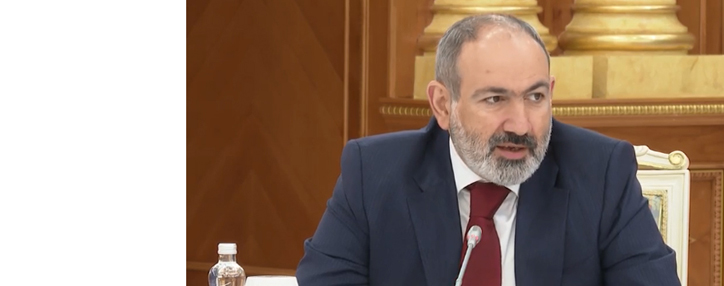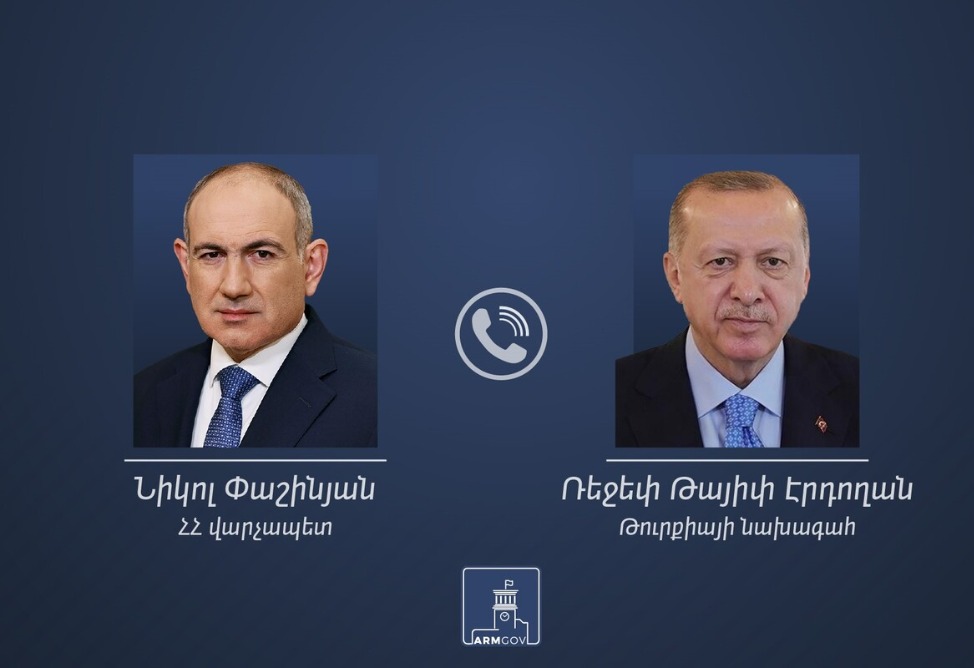Pashinyan brushes off allegations of surrendering Artsakh to Azerbaijan

YEREVAN, April 22. /ARKA/. Armenian Prime Minister Nikol Pashinyan brushed off today opposition's accusations that he is preparing to surrender Nagorno-Karabakh to Azerbaijan as he spoke at a cabinet meeting one day after visiting Moscow for talks with Russian President Vladimir Putin.
"I have to state that Artsakh (the Armenian name of Nagorno-Karabakh) is not a subject that can be surrendered or not surrendered. Artsakh, first of all, are the people who live there," Pashinyan said.
He said that if the Armenian authorities were going to surrender Artsakh, they would not have spent tens of billions of drams after the 44-day war in 20200 to ensure the return of Artsakh Armenians to their homes.
"If we were to surrender Artsakh, we would have done nothing after the war. On the contrary, we are investing in Artsakh in unprecedented amounts (an equivalent of $300 million earmarked for 2022) because to preserve Artsakh means that the people of Artsakh will stay there. To preserve Armenia means to make sure that Armenians live in their country and bring back those who left it. And this is impossible without peace (with Azerbaijan)," Pashinyan said.
He ruled out that any document will be signed on Artsakh without broad public discussion in Armenia and Artsakh.
"This is an ironclad guarantee that Artsakh's fate cannot be decided secretly from the people. Pessimists cite the trilateral statement of November 9, 2020, which was signed without broad public discussion. It's a strange comparison because in 2020 November decisions were to be made within hours, sometimes minutes to save the lives of thousands of Artsakh people, 25 thousand of military servicemen and prevent the expulsion of Armenians from Artsakh," Pashinyan said.
"At the moment, all the documents that are the subject of negotiations between Armenia and Azerbaijan are in the public domain. These are the 5 principles transmitted to us by Azerbaijan and our reaction to them is well known. All the information has been made public. We will continue doing so up to the limits allowed by diplomatic ethics," Pashinyan said.
He also commented on the "speculations" after his announcement that international structures demand that Armenia lowers the bar on Artsakh's status. According to Pashinyan, this proposal has been voiced many times during the talks on the Karabakh settlement, particularly, in 2016 by the OSCE Minsk Group cochairs. 'Such a demand was also included in the Madrid Principles, but it was not made public', according to Pashinyan.
"Our strategy is to ensure that the people of Artsakh continue to live in Artsakh and consider themselves Armenians. No solution that does not ensure this is acceptable to us," Pashinyan said.
The principles of a peace agreement proposed by Azerbaijan include mutual recognition of sovereignty, territorial integrity, inviolability of each other's state borders; mutual political independence, mutual confirmation of the legal obligation of states not to present territorial claims to each other and not to present such claims in the future; to refrain from threats to each other's security in interstate relations, from threats to political independence and against territorial integrity, and from the use of force and steps inconsistent with the purposes of the UN Charter; demarcation of the Armenian-Azerbaijani border, establishment of diplomatic relations; opening of transport communications, establishment of other relevant communications; cooperation in areas of mutual interest.
According to Armenian Foreign Minister Ararat Mirzoyan, there is nothing unacceptable in Azerbaijan's proposals. ‘However, the items indicated in the Azerbaijani proposals on concluding a peace treaty do not fully reflect the entire agenda of the existing problems,” Mirzoyan said earlier. He said for the Armenian side it is fundamentally important that the rights and freedoms of the Armenians of Artsakh (Nagorno-Karabakh) are clearly guaranteed, and the status of Nagorno-Karabakh is finally clarified.
"For us, the Nagorno-Karabakh conflict is not a territorial issue, but a question of rights. As we have already reported, the Armenian side responded to the Azerbaijani proposal emphasizing this position," Mirzoyan said. -0-



